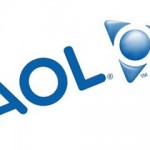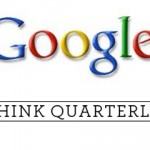 Reston, Va. — After examining the data released by comScore just last week, software maker Microsoft’s search arm Bing grabbed a slightly bigger slice of all the U.S. search engine pie in April, while Google sheds a tiny amount or stays flat, according to the latest comScore data, released.
Reston, Va. — After examining the data released by comScore just last week, software maker Microsoft’s search arm Bing grabbed a slightly bigger slice of all the U.S. search engine pie in April, while Google sheds a tiny amount or stays flat, according to the latest comScore data, released.
Certainly, the share percentage for any of the major search engines did not spike or fall off dramatically — it never does. But the rising trend, basically ignited back when Bing was announced in June 2009, is accompanied this time by a bit of a rise in search share from Bing’s search partner Yahoo!.
Generally, the numbers changed a few tenths of a percentage point for each in one direction or the other. That does not make for an attention-grabbing headline.
Hence, the two properties captured 30% of US search market share for April, to Google’s 65.4% share. Bing continues its steady climb upward, from some 8.9% share in June of 2009, and during the month, accounted for 14.1% of the US search market, up 0.2% from March’s numbers.
Moreover, the chart below, which illustrates the total percentage of the desktop search market controlled by Google, Yahoo and Bing, which indicates that Google has held on to about two-thirds of the market since April 2010. It has flatlined. Yahoo, which was able to avoid an attack by analysts because it picked up two-tenths of a percentage point over the past month, is still down a full point from where it was last year. Microsoft Bing, on the other hand, has reliably grown every single month, presumably luring in old Yahoo users and individuals leaving AOL and the Ask Network.

(Credit: comScore)
What the chart does not show is probably a far more important number: something like revenue generated per point of share. Bing has positioned itself as a “decision engine,” but more precisely a shopping engine. Besides, Yahoo’s search market share, which is powered by Bing technology, also edged up 0.2% to account for some 15.9% of the US market for the month.
In addition, comScore also showed that AOL controlled just 1.5 percent of the desktop search market in April 2011, which is less than half of what it had six months ago. The Ask Network, which accounted for 3.6 percent of the market in October 2010, now controls only 3 percent.
Furthermore, Bing’s growth seems to come at the expense of Google. But glancing at the longer-term picture over the past several months, Microsoft’s “powered by” searches have continued to inch up, while Google’s have gradually dipped.
Nevertheless, Microsoft has been pushing hard to gain share by seemingly any means possible, increasing exposure, for example, for efforts like Bing Rewards. Also, it is unclear exactly what effect Google Instant Search is having on its market share, and what now constitutes a ‘search’ with it in effect, but the trend does seem to be that Google is slipping just slightly in the US.
Interestingly, the ever quotable figure, Microsoft’s CEO Steve Ballmer, quoted as saying in January that Bing is “growing like a weed.”


